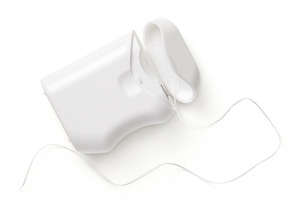
While many dentists emphasize the importance of flossing every day, many people just can’t seem to get into the habit. In fact, some statistics say that over 32 percent of Americans never floss at all. If you’re part of this group, then consider this: if you start flossing every day, it could potentially help you live longer. Here’s the full story behind flossing and what it can mean for your overall health.
What’s the Link Between Flossing and a Longer Lifespan?
Recent research has shown that people over the age of 50 who don’t floss are 30 percent more likely to die than those who floss daily. (This is, of course, in the absence of other factors.) This statistic might seem surprising at first, but it makes sense when you consider the impact oral health can have on your overall health.
When you don’t floss, harmful plaque and tartar can accumulate in the spaces between your teeth. This can eventually lead to gum disease, which in turn can result in tooth loss if it’s not properly treated. Not having a full set of teeth to chew your food can limit your diet and cause your health to suffer due to poor nutrition. Even worse, gum disease can increase your risk for life-threatening cardiovascular problems and other serious health conditions.
What is the Right Way to Floss?
If you want to get the full benefits of flossing in order to lead a healthier lifestyle, you need to make sure that you’re going about it the right way. When you floss, make sure that you follow these steps:
- Use about a foot and a half of floss so that you have plenty to work with.
- Wrap one end of the floss around your middle finger. Then wind the other end around the corresponding finger on the opposite hand.
- Carefully move the floss up and down between two of your teeth. When you reach the base of the tooth, curve the floss to ensure that you’re cleaning around the gumline as much as possible.
- When you’re ready to clean between the next set of teeth, unwind the floss a bit and wind it back up with the opposite finger. That way, you’ll be able to use a different section of floss.
It should be noted that if you’ve just recently started flossing, your gums may bleed slightly at first. This can be considered normal during the first week, but if it keeps happening after that, you should call your dentist.
It may seem like a lot of effort to pick up flossing as a habit, but your overall health can benefit in the long run, and it could even potentially save your life. The next time you’re at the grocery store, make sure “dental floss” is on your list.
About the Author
Dr. Adam Jones earned his Doctor of Dental Medicine at the University of Florida College of Dentistry. At Premier Dental in Vero Beach, he aims to always bring his patients 5-star service, even if they just need a routine checkup. He’s always happy to make recommendations regarding flossing and oral hygiene. To schedule a consultation with Dr. Jones, visit his website or call (772) 234-5353.
